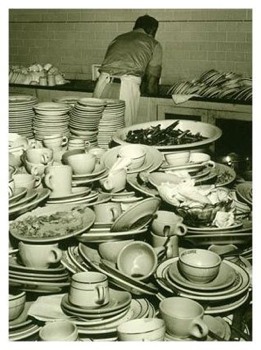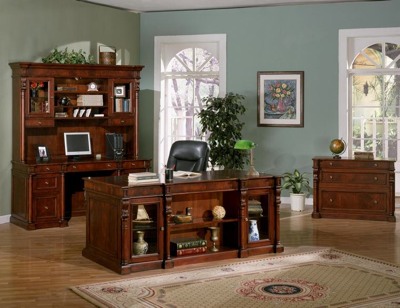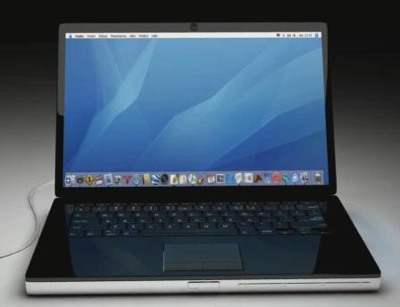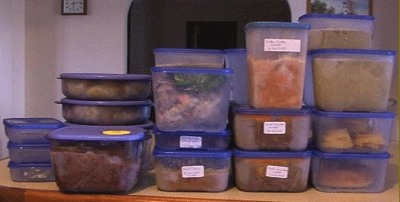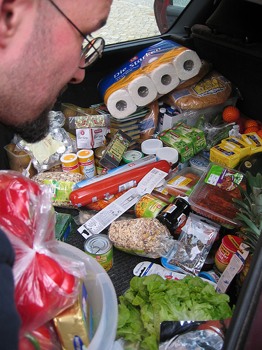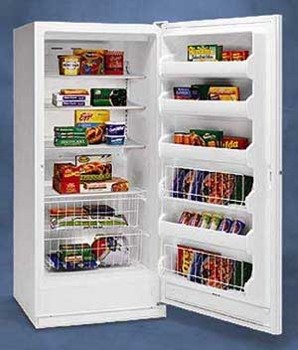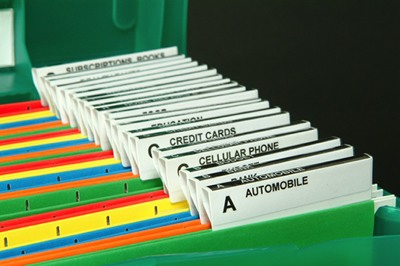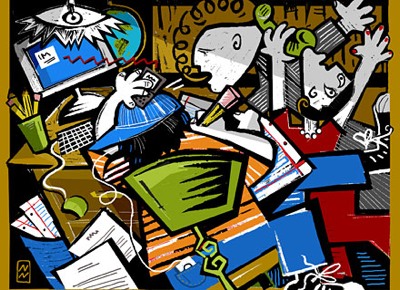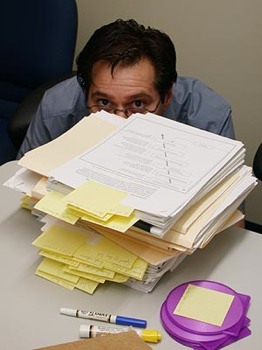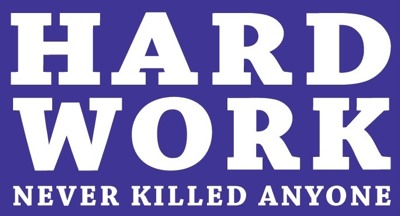 History
History  History
History  Health
Health 10 Everyday Activities That Secretly Alter Consciousness
 History
History Top 10 Historical Disasters Caused by Someone Calling in Sick
 Animals
Animals 10 New Shark Secrets That Recently Dropped
 Movies and TV
Movies and TV 10 Forgotten Realities of Early Live Television Broadcasts
 Technology
Technology 10 Stopgap Technologies That Became Industry Standards
 Weird Stuff
Weird Stuff 10 Wild Facts About Taxidermy That You Probably Didn’t Know
 Travel
Travel 10 Beautiful Travel Destinations (That Will Kill You)
 Miscellaneous
Miscellaneous 10 Modern Marriage Rituals Born from Corporate Branding
 Weird Stuff
Weird Stuff Ten Bizarre Visions of 2026 from Fiction
 History
History 10 “Modern” Problems with Surprising Historical Analogs
 Health
Health 10 Everyday Activities That Secretly Alter Consciousness
 History
History Top 10 Historical Disasters Caused by Someone Calling in Sick
Who's Behind Listverse?

Jamie Frater
Head Editor
Jamie founded Listverse due to an insatiable desire to share fascinating, obscure, and bizarre facts. He has been a guest speaker on numerous national radio and television stations and is a five time published author.
More About Us Animals
Animals 10 New Shark Secrets That Recently Dropped
 Movies and TV
Movies and TV 10 Forgotten Realities of Early Live Television Broadcasts
 Technology
Technology 10 Stopgap Technologies That Became Industry Standards
 Weird Stuff
Weird Stuff 10 Wild Facts About Taxidermy That You Probably Didn’t Know
 Travel
Travel 10 Beautiful Travel Destinations (That Will Kill You)
 Miscellaneous
Miscellaneous 10 Modern Marriage Rituals Born from Corporate Branding
 Weird Stuff
Weird Stuff Ten Bizarre Visions of 2026 from Fiction
Top 15 Tips Designed To Save You Time
Time. Time is money they say. Time is also freedom. We each have the same amount of time every day – 24 hours – to do everything we need to do to: to work, to eat, to rest, to sleep, to have fun, to relax, and often to try to suit everyone. Some of us seem to have all work and no play, and what free time we have is never free, it is lost to endless hassle and mindless tedium’s. So why not take time into your own hands by making it work for you for a change?
The laundry – everybody loves it! So lets start with this first. Pre-sorting the laundry can save a lot of time and mistakes. One red sock in a whites wash can throw away all your hard work; so as soon as it’s dirty – sort it. If you have enough space in your kitchen or laundry room, consider having four wash baskets/tubes (i.e. one for the whites, the coloreds, the woolens, and one for the delicates), then you can choose which basket is the most important and bung your materials straight into the washer. When they come out at the other end, nice and clean, hang them on the line or on a drying rack straight away. By hanging clothing to dry it can save a lot of time ironing and pressing them flat; and some items will naturally dry without creases if hung to dry.
Whenever kitchen and meal utensils are being used, it can be a good idea to have a bowl or hot water handy to slip your items into. Doing so can mean you can easily wash and rinse items while preparing food. At the end of the day, take out all the items you have accumulated in the washing bowl, and fill it again with hot water. Stubborn items can now be washed in a fraction of the time as most of the gunk will have softened or come off in the pre-soak. This tip is especially useful for pans, but just about anything will benefit from a pre-soak. It can also save water; as a pre-soaking will still be effective even if the water is cold and filthy, and most loads only require one bowl of hot water to finish the whole job. One word of warning though; don’t be tempted to leave the dishes for the next day – not only because it is so easy to put things off, but also because doing so can permanently stain the washing bowl; wasting time as you go out and buy a new one.
Now this may seem an obvious choice, but in practice this method can waste a lot of time for most people. In theory, working from home can mean all the time you would usually waste traveling to and from work can be saved – and spent doing more important things. In practice, those more ‘important’ things can quickly turn into house-work, web browsing, washing the car, scrubbing the toilet bowl – anything that doesn’t involve sitting down to work! Another disadvantage comes as an offshoot to this, as sometimes the person feels so guilty that they will work long into the evening to ‘catch up’. This then bites into personal time; the person goes to bed later; the person gets up later the next day; the cycle begins again.
If you travel to work on a train or a bus, the chances are that you could use this time to get some jobs done quickly en-route. Sending those all important emails can be done even before you set a foot inside work. Typing up a memo, working on a presentation, or simply writing up a ‘to do’ list (see #2) can shave those valuable little jobs off your agenda. Laptops can come in handy at school too; by typing things directly into a digital format, whole chunks of notes and thoughts can be dragged and dropped into your latest essay. Finally, with email taking the crown away from the postal service and the telephone as the most used communications medium, vital messages and files can be processed and analyzed on-the-hop; saving the sender and the receiver lots of ‘waiting’ time.
Not all of us work at the same time. Some jobs require working very late hours, or perhaps working through to the next day. In these cases, it can become a chore to do more work in the kitchen when you get home – when all you want to do is collapse. To save time, I used to do all my cooking all on the same day, and freeze the results. If cooking isn’t really your thing and you want to give this a try, I recommend creating at least four dishes: I.e., creamy pasta and tuna, chili, broth, a chicken dinner. Throw one of these together with potatoes and a choice of vegetables and you have a meal – to be stored on a reusable foil dish – and frozen. Then, instead of eating junk after work, you can simply pop one of your four choices of meal into the oven for half an hour instead. One roast chicken can be portioned out to be included in 10 meals. Sunday lunches and full English breakfasts can be pre-cooked in the same way. My personal record was 35 meals cooked and frozen in one day – and a whole months worth of making sure I ate properly after work.
For those people not enthused about grocery shopping, the obvious solution would be to buy all you need in one go. Can you buy everything you need for a month in just one day? Yes, particularly if you have a large freezer, a large trunk, and a small family. Buying in bulk can also be cheaper as larger packs and multi-packs can be much cheaper than buying individual items. Why buy one bar of soap when four can be bought together, more cheaply, and more time efficiently? Washing detergent is something we all need regularly and in good supply – so if you work out that you will get through four boxes over a year, save time by buying all four together – you will have to buy them all eventually! Another tip might be to shop online. This saves traveling time, buying time, and queuing time in a store. However for grocery buying, this tip only really works if you are entirely familiar with your grocery list AND the online stores’ layout; otherwise it can take just as long as shopping the traditional way.
When you get your groceries home, put as many things into long term storage as possible. Cans of food will last longer than a month. Dry goods and chemicals will last longer. Frozen goods can go in the freezer, and a lot of fresh goods can be frozen too. This all adds to the duration between trips to the store. If you are trying out tip # 10, and wonder how you can make perishables last longer – try freezing. Bread, for example, freezes well; particularly if you separate the slices before freezing, or by placing 4-8 slices in a sandwich bag together. Then you will always have bread – and a quick trip to the toaster defrosts every time. Milk can be frozen as well, and works especially well if you have a big ‘chest’ freezer to stand them up in. The note here is that due to the freezing process, whole milk will come out tasting like semi skimmed. Semi skimmed will come out tasting like skimmed, but by doing so, your milk will last for months at a time. Place your milk in the fridge to defrost the day before you need it. What else freezes? Some vegetables freeze well as most vegetables are water-based anyway. Eggs? If you hard boil an egg it works – though I haven’t tried from raw yet. Pies, pastry, cakes? No problem!
Most people have seen the old type office filing system – loads of cardboard wallets filled with papers, and marked with clip-on labels above each wallet. Accessing files is a matter of opening the drawer, finding the label and opening the wallet/file. To do this in the home saves an almost immeasurable portion of your valuable time, as all the things you may need to refer back to are all indexed and stored in ONE place. Each time a new bill comes in, pay it, and throw it into the correct file. Then, if you need to refer back (for your electricity company, or your phone company) all you need to do is open one drawer and pull the latest bill out. Banking problems? By placing all the bank statements in the ‘bank’ wallet, they will naturally fall into date order as this is how you placed them in. It then becomes a breeze to check back and find things. Anything from receipts, manuals, brochures, business cards, scraps of paper with phone numbers on them – all the things so easily lost around the house – can be on-hand when you need them. Also, part of the home filing system (which takes a day to set up), is having all your phone numbers listed on a single sheet of paper. If ever your home phone gets broken, or mobile goes missing, or you loose your address book, at least you have a backup. This is also great for emergency numbers; which are also all together and available on demand. In general, the better you can organize your home, the easier it is going to be to find things. In an emergency, knowing where you keep a torch, an extinguisher, your wallet, and the house and car keys, may save your life one day….
With the development and rise of the internet over the last 15 years, communications have moved on. Now it is possible to do nearly all your banking quickly and easily from home – saving the time it would normally take queuing up and waiting at a bank. Money transfers, bill payments, transaction accounts, overdrafts and applications are now available on most online banking sites, enabling you to use and distribute money on the same computer as you may use to budget, receive bills though email, or use for any number of other money related tasks. If you have several accounts with the same bank, online banking comes into its own; from being able to instantly check your balances, to transferring money over to other accounts if they look like they might go into the red.
Even though a modern PC is still not too great at multi-tasking, we as human beings have been doing so for millennia. If you can, arrange items on your ‘to do’ list (item #2) that can be done together at the same time. For example, printing pages while typing, burning discs or backing up while working, planning while eating. There may be any number of opportunities to multitask on a daily basis, and the most common way to achieve this is simply to have all your applications and files loaded into the computer at the same time. Then if you need to switch to a different priority, one click of the mouse (or an Alt.Tab) will get you there. It is useful to always have your email accessible at all times; perhaps having your mailbox as a tab in Firefox, already pre-loaded and ready to go. Another good example of multitasking may be to get everyone you need to see to come and see you, perhaps all together in one go. So, if you wish to see all your friends – why not invite them all over to one single venue. Christmas can also be a good time to get everyone together rather than to go off and visit people individually.
Perhaps the best example of multitasking is to delegate – i.e. to arrange for another person to do a task instead of you, or on your behalf, while you do something else. Then the whole job gets done more quickly, and hopefully just as completely as if you’d done it all yourself. An example of delegation would be to get your own family involved in the tasks you do: why not rope the kids in to help with household chores, ask others to pick the kids up from school, ask others to pick up groceries, or even ask others to grab you a coffee. Delegation can also be great for ‘getting someone else to pass a message on’, but be warned in this case that an exact message may become corrupted, a bit like Chinese whispers. Also be careful not to delegate tasks which you need to make sure get done on time, as if they don’t, it’s still your fault.
The larger tasks of the day are the ones which give the biggest headaches, and also offer the richest personal rewards. Some tasks can be split and delegated, but some need to be split in order for them to look smaller on the page. Self motivation is always the key when it comes to time management, and so it becomes much easier on the individual to move though a list of smaller tasks than to face the mountain of one large one. For example, if the task was to deliver a product from point A to point B, the task could be so much easier to work through if you split it down into ‘phone calls’, ‘paper work’, ‘mail deliveries’, ‘confirmation’, ‘feedback’ – rather than facing “This must be delivered today! – No Excuses!”
Another advantage of working through smaller goals, apart from the psychological and stress factors, is that there is a higher chance of getting things right first time. Life is always full of second chances, but each time you have to go back and do it again is just a waste of time. Who needs it? Never sacrifice quality for ‘due care and attention’, as poor workmanship or appliance of effort can lead to having pretty fragile offerings at the other end. Even if a long list of tasks has been broken down, it is important to get everything done, mindfully and completely, in an orderly fashion, and on the same day if possible. If things take longer than a day, don’t reply on your memory, or your motivation, to pull you through; trying to get into the mindset of the day before is harder work than just making sure things get done on the same day – first time.
‘To Do’ lists. Why bother? Why spend 10mins every day working out lists of things to do rather than just getting on and doing them? Well, the simple reason is because the human mind is not the most perfect thing ever created, and does forget things from time to time. To Do lists will not only allow you to arrange items for priority and convenience, but also allow you to pencil in all those little jobs you would normally not even think about. Telephoning ahead to make arrangements is a sensible idea, and a To Do list could remind you to do that before you remember to remind yourself – half way down the highway. Even in the home environment, remembering to contact a friend, or even to take out the trash, can be as insignificant as they are vital; and forgetting can mean waiting another day, or even another week, to catch up. If it’s worth remembering, note it. As a consequence, writing things down will also improve your memory for those everyday priorities – not only did you come up with them, you also wrote them, and perhaps read them back. Some people are so good at remembering their To Do lists that they wonder why they ever write them, not realizing the writing is the reason for the remembering! Another point is to keep things plain and simple, on one sheet of paper, or on a white board. Don’t have endless scraps of paper or Post It notes piled up on desks and stuffed in drawers. Planning ahead can also save time in all sorts of other ways. At the start of each month, write down any birthdays or special events so that you have plenty of time to organize gifts. In the case of Christmas, aim to buy at least two months before the 25th so that you have enough time to choose a thoughtful gift; last minute gifts don’t say much about the quality of your friendship. Finally, it is also a good idea to have a calendar which shows each month, or all the months, on one page. Diaries and weekly reminder books are a very poor way to plan ahead as you may not see an event coming up until it is too late to make arrangements for it.
In other words, don’t be tempted to put things off until a later time or date; for one reason, because you may forget to take it up or finish it! The other reason is because the best way to save time is to get on and do something about it. This may seem the most common sense aspect of this whole list, but really, procrastination can be a habitual bugbear for a lot of people. Going to work can be a hard task to instigate, especially if you haven’t even managed to get out of bed. Save time by not only getting up, but getting up earlier. That way you help beat the traffic, the journey takes a shorter length of time, and is generally less hassle; resulting in an easier start and a clearer head.
Doing things early is indeed the very best way to save time. This is not always possible, or appreciated, but there are a lot of advantages to getting things done early. For one thing, nothing impresses others more than hearing “already done it!”. For another, so much time is actually wasted by leaving things until the last minute and having to rush. Rushing is time wasting? Yes, because rushing often creates costly mistakes. If you know what you want to achieve, make your list, break it down, delegate, and aim to complete hard tasks first. That way the bulk of your ‘hard work’ will be over sooner, leaving the rest of the day to tidy up the loose ends. Hard jobs also get done more thoroughly in the morning when you have the motivation and the energy to do so. After lunch is the worst time to do, or start, large tasks as your bodies’ energy juices will be flowing AWAY from the brain in order to digest the food in your stomach. The last of the big jobs should be started no later than 3pm – as the body will naturally begin to wind down after this. Procrastination is as much about psychological security and job satisfaction as it is about putting things off. If you must, start by promising yourself a treat. Then get on with it. Some things are inevitable – they have to be done sooner or later, so rather sooner than later eh? Soonest fixed is soonest mended, and soonest home for tea.

